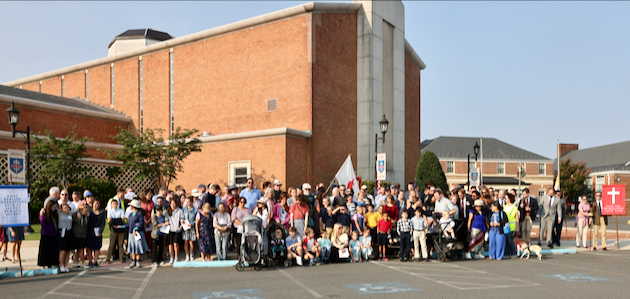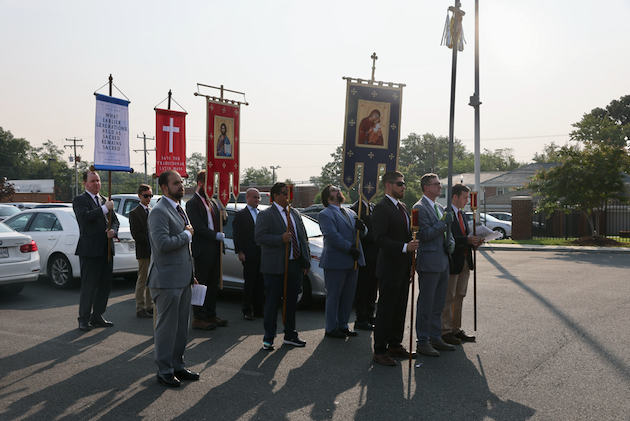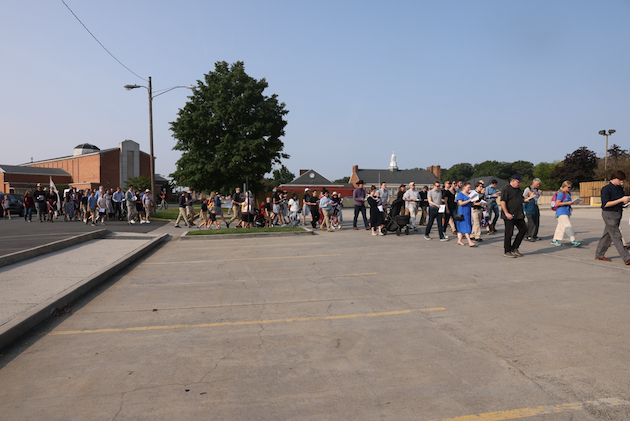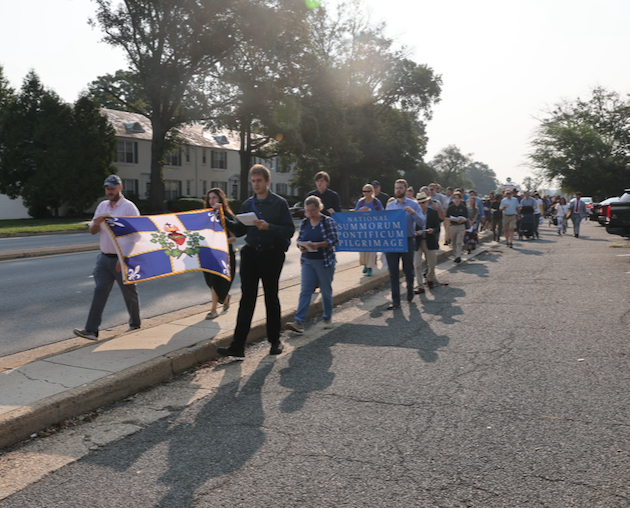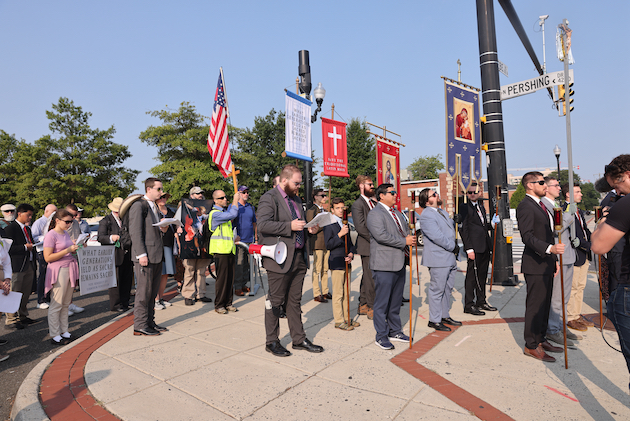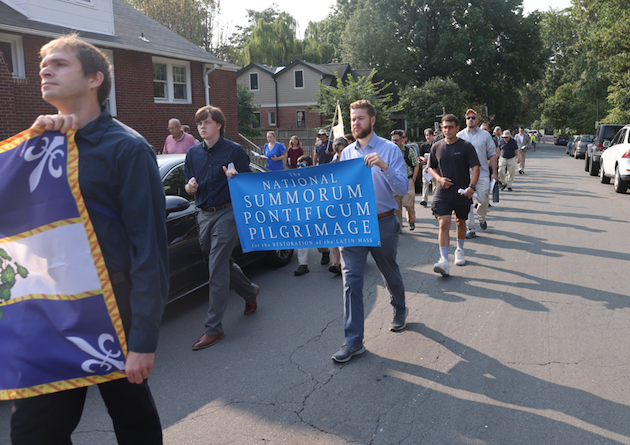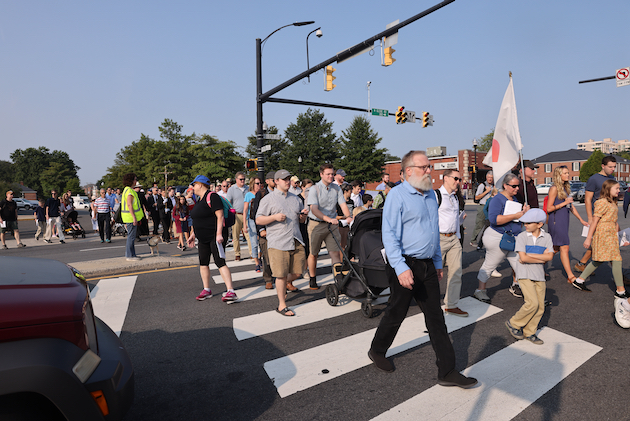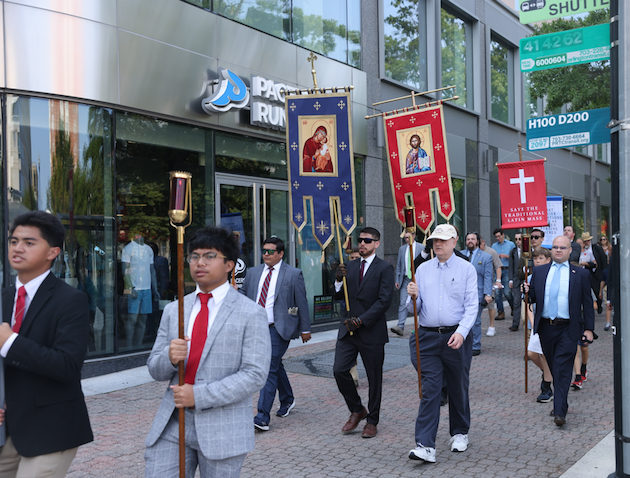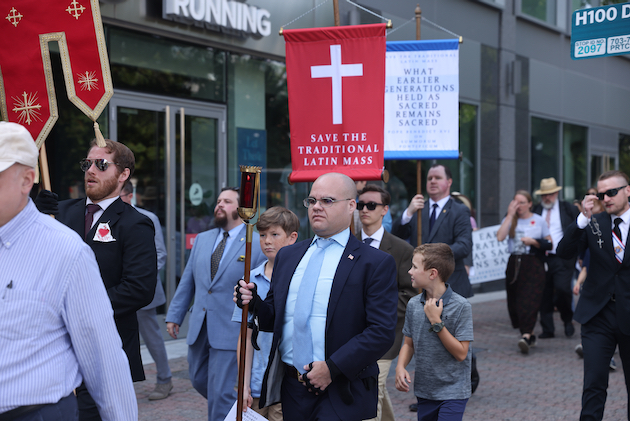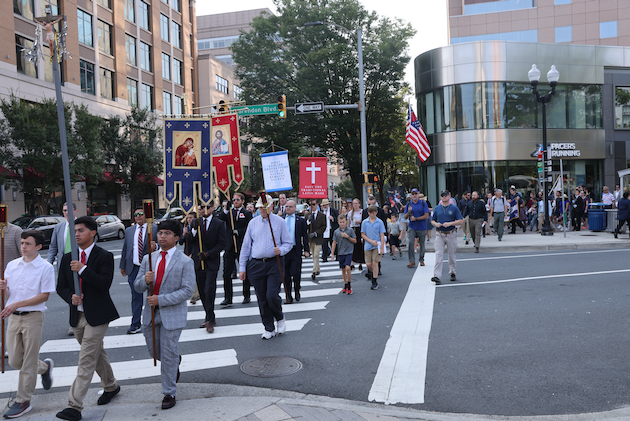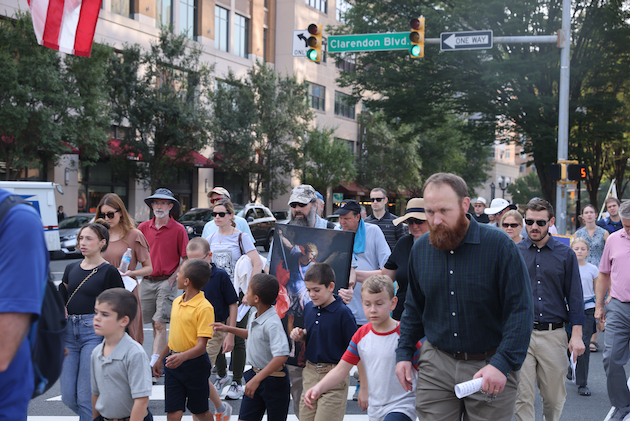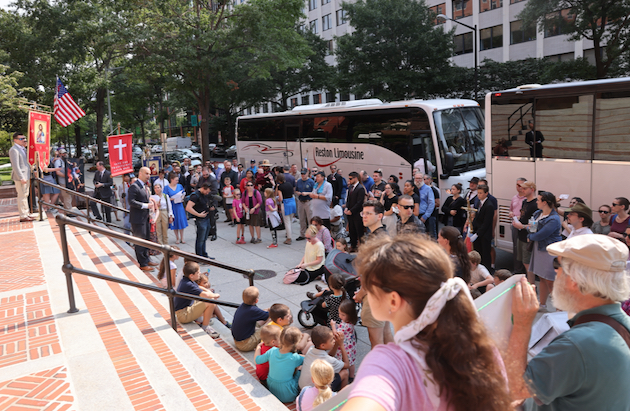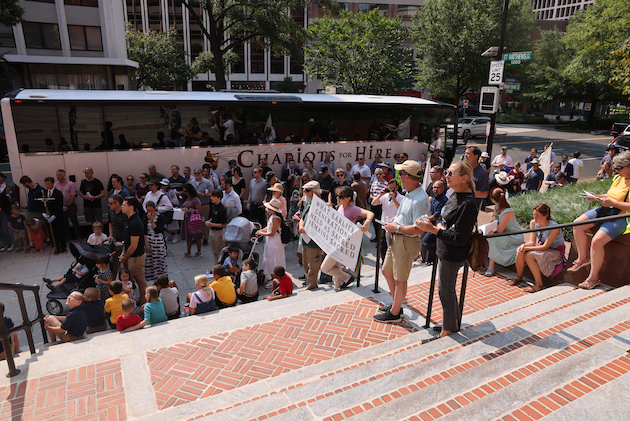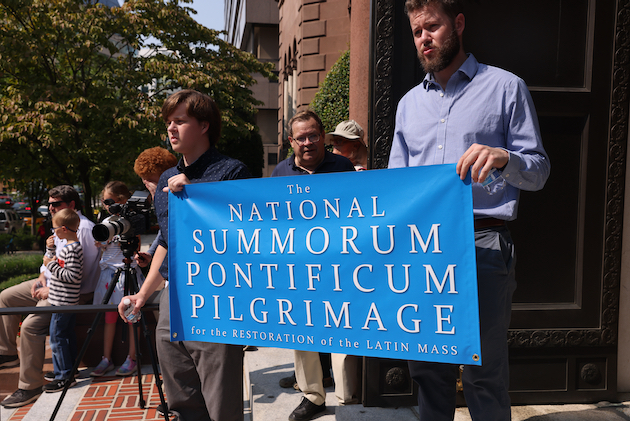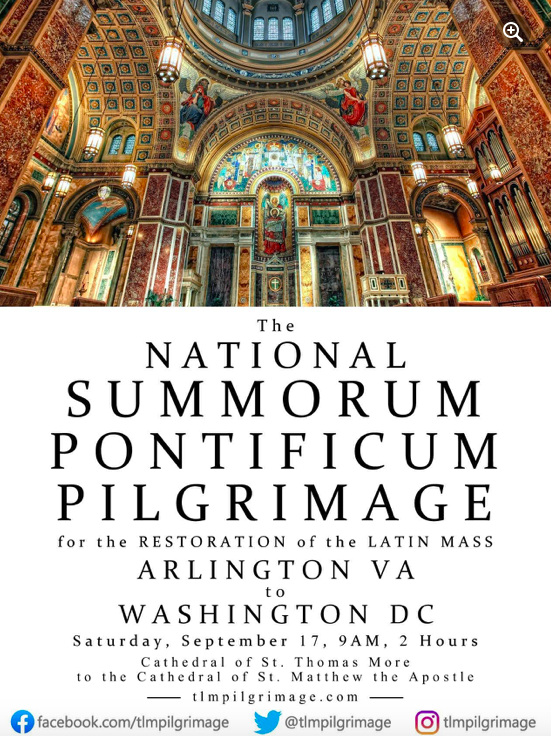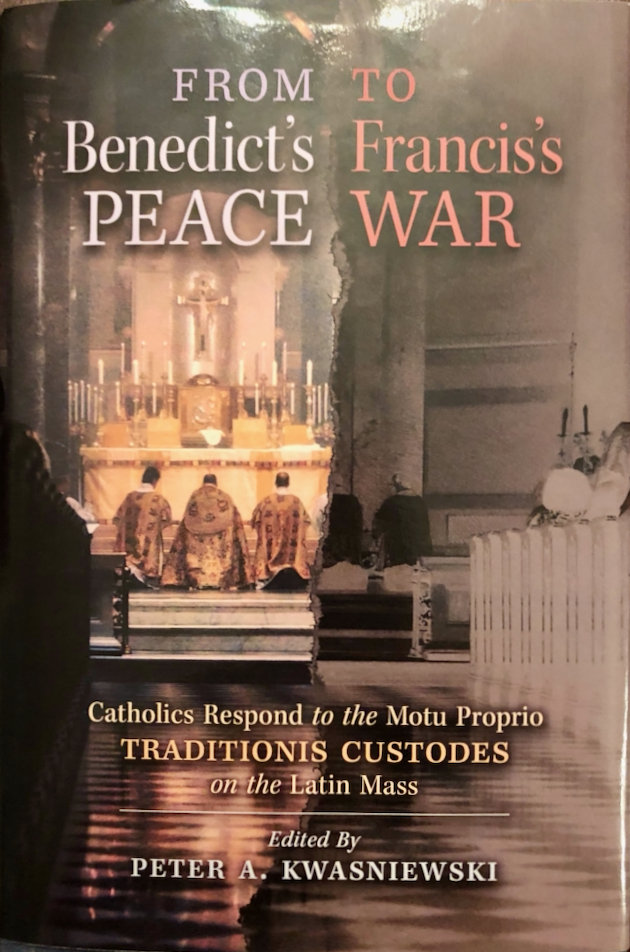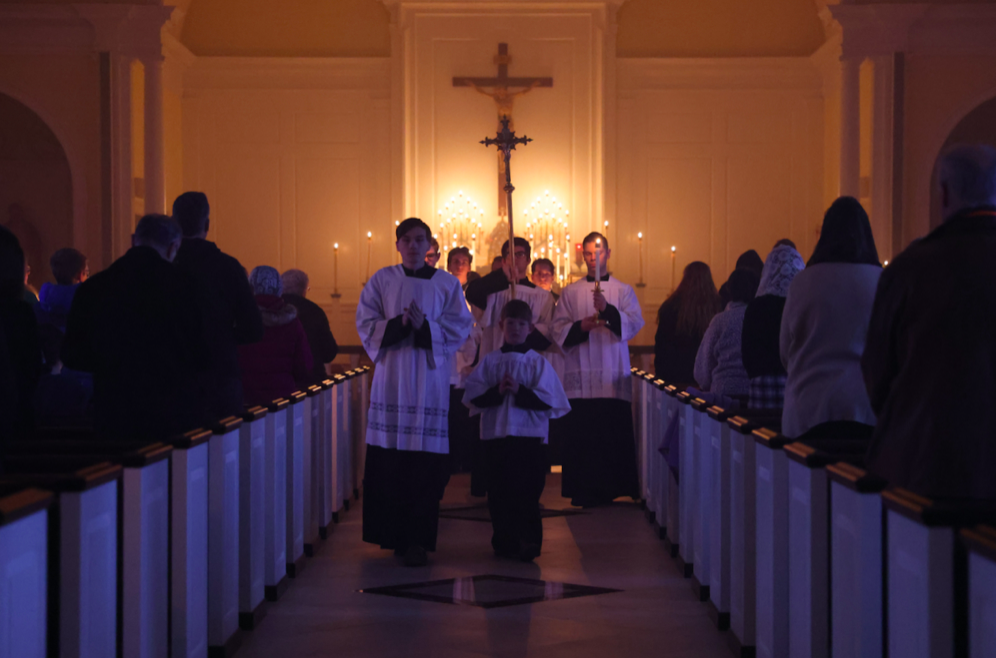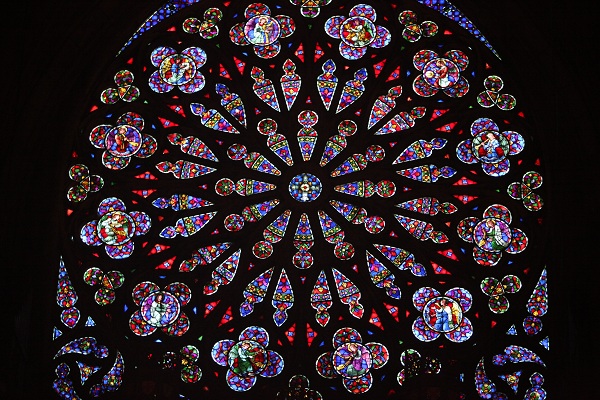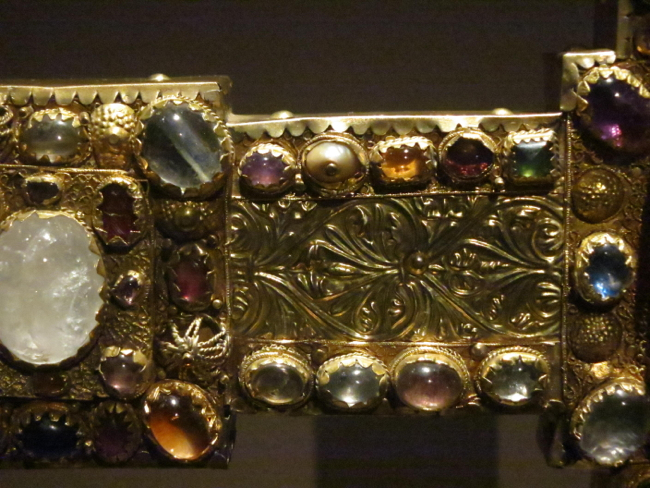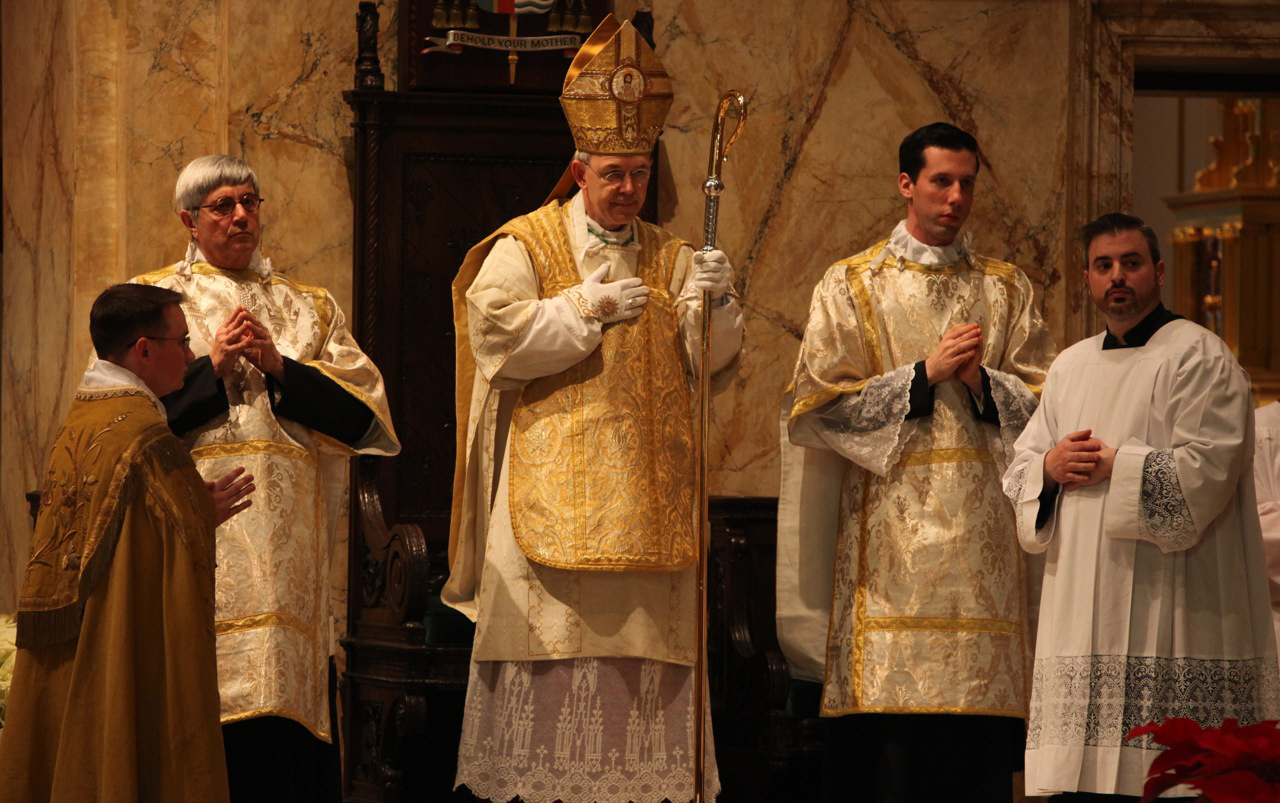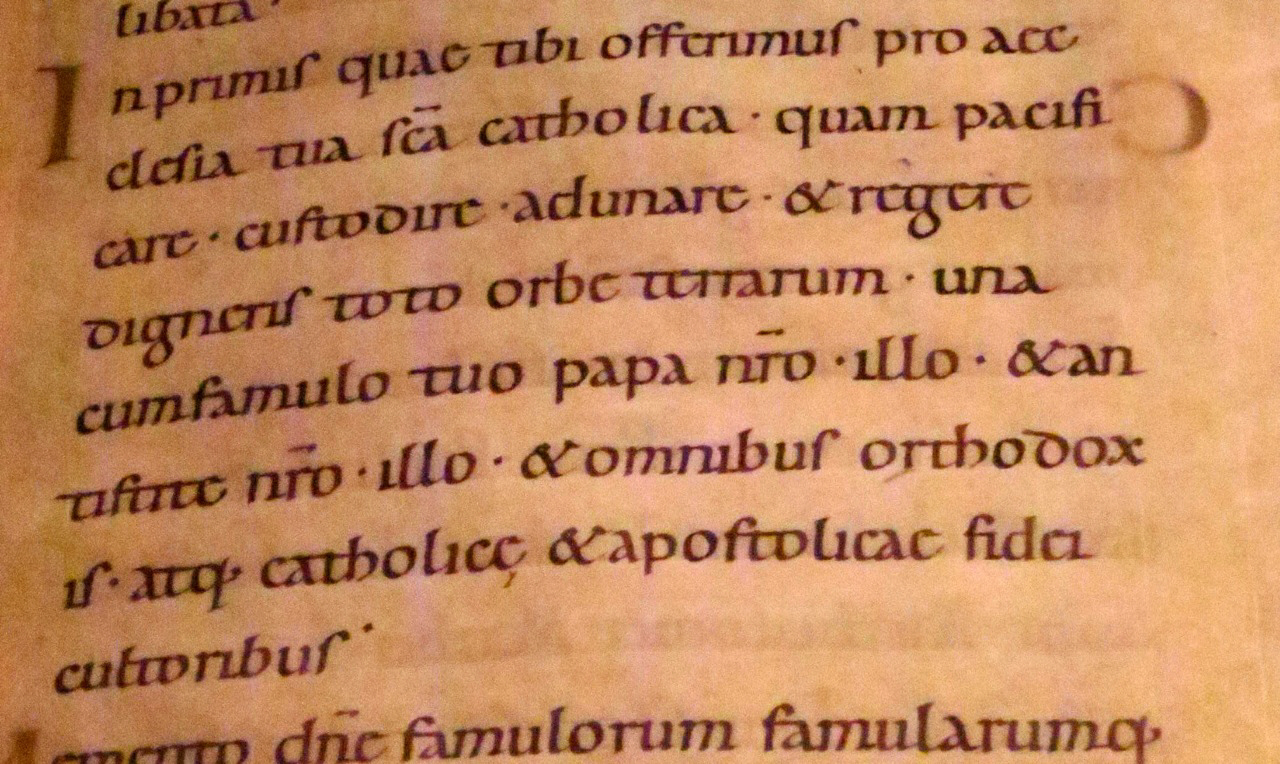This past Saturday, Sept. 17, between 250 and 300 Catholics prayerfully marched five miles from the Cathedral of St. Thomas More in Arlington, VA, to the Cathedral of St. Matthew the Apostle in Washington D.C. as part of the first-ever National Summorum Pontificum Pilgrimage for the Restoration of the Traditional Latin Mass. This march was organized in little over a month in response to the harsh restrictions to the Traditional Mass enacted in the the Dioceses of Washington and Arlington. The march was filled with young couples and families, parishioners of local parishioners as well as pilgrims who had come down from the New York area and from other states. Noah Peters, march organizer, gave a stirring speech on the steps of St. Matthew Cathedral. Excerpts of his speech and scenes from the march can be viewed on this video. See also our photos of the march below.
